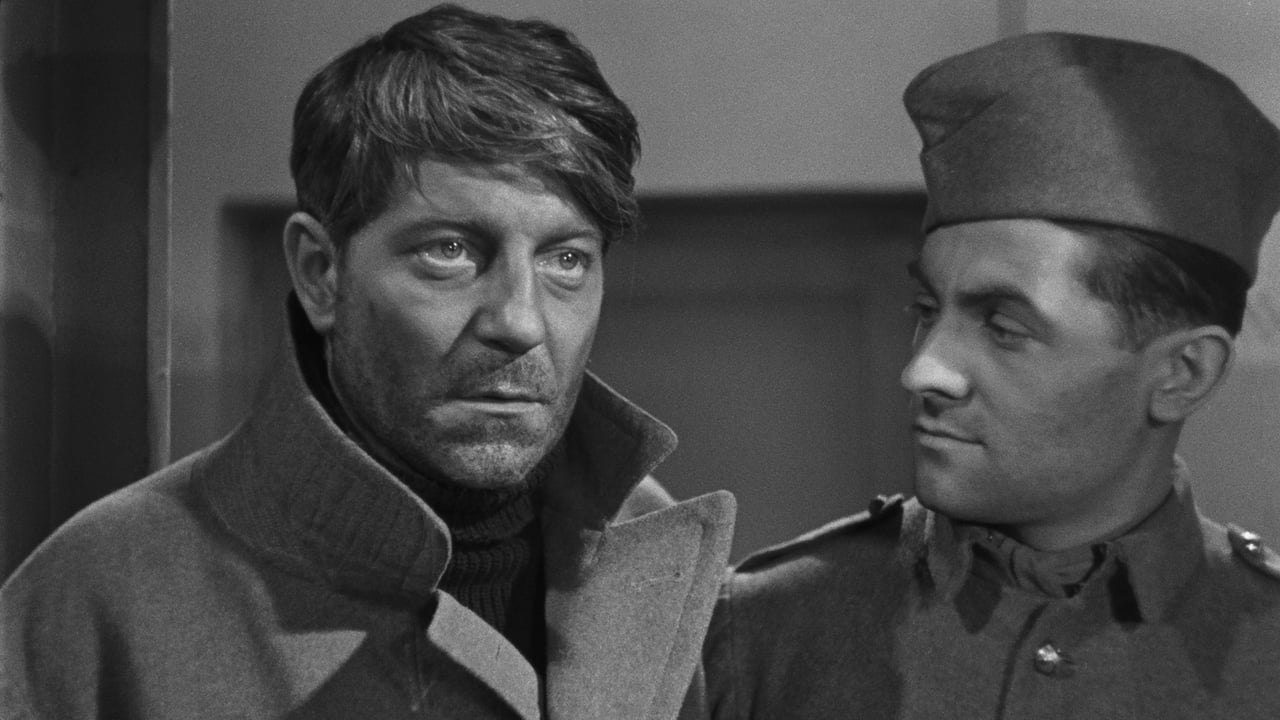

After viewing the film, I'm in a quandary as to why it has earned the reputation it has. About the only historical element that came across as accurate to me was the preference shown to officer prisoners of war, who were segregated from the general population of combat soldiers captured in battle. Beyond that, the story seemed almost farcical, what with the German Captain von Rauffenstein (Erich von Stroheim) expressing cordiality to the French captain and pilot he shot down. A later scene when he begs Captain Boeldieu (Pierre Fresnay) to halt in his escape attempt was even more ludicrous. If these examples were meant to convey some intended message about humanity in the midst of war it was totally lost on me. And the idea of prisoner soldiers dressing in drag to put on an entertainment show defied any kind of rationale I could come up with. Not to mention another question I had - where exactly would the prisoners have gotten all those flutes to irritate their German captors, or the pots and pans they came up with as an encore?I don't know, I must be missing something, and even the more enlightened positive reviews for the film fail to convince me that there's something of significance to be found here. Perhaps in time I'll give it another try, but for now I can only shake my head in wonder. For me, the term Grand Illusion carries an entirely different connotation now as it relates to the movie.
... View MoreWhen I saw the ending of this film, I realised I saw this film as a boy many decades ago.Jean Renoir's, La Grande Illusion is set during The Great War. The film was made in 1937 and so its depiction of the Germans has not been tainted with the actions of the Nazis in World War 2.The story begins with two French officers, Lieutenant Marichal (Jean Gavin) and Captain De Boeldueu (Pierre Fresnay) taken to a Prisoner of War camp where the inmates have been digging a tunnel. After several attempts to escape, the French officers get sent to a castle high up the mountains run by Rauffenstein (Erich von Stroheim.) He is an intimidating looking, flamboyant but courteous officer we met earlier on in the film who treated the captured French officers very civilly.Rauffenstein sees in De Boeldueu an old way of life run by the aristocracy which is now at risk with the growing middle class in Europe with their newly acquired wealth. There are many times we know that De Boeldueu's word as an officer counts more to Rauffenstein.The film as another sub text about people in this camp trying to get along with people of different classes, religion, colour and nationality. One of the person Marichal will eventually escape with is a French Jew, one of the inmates in the camp who is ignored at times by the officers is black. When Marechal is leaving the first camp he tries to tell the incoming British officers about the tunnel they have been digging it falls to deaf ears as they cannot understand French.The inmates are united as they plan to escape, dig the tunnel and hide the dirt. They feel camaraderie when the British officers boost morale by putting on a stage show and the looks on their faces when one of them appears in drag for the first time, highlighting the fact that they have not seen a female for months or years.The film is in French but has a smattering of German and English. In some ways the film set the template for the second world war POW films like The Great Escape but this movie dos not have the tense excitement of such an action film that would follow three decades later. Then again it is more than just a film about prisoners escaping, more a character piece which also makes the film slightly stage bound and even slow moving at times.
... View MoreDuring the First World War, two French soldiers are captured and imprisoned in a German POW camp. Several escape attempts follow until they are sent to a seemingly impenetrable fortress which seems impossible to escape from.This is regarded by critics and film historians as one of the masterpieces of French cinema and among the greatest films ever made. Orson Welles named "La Grande Illusion" as one of the movies he would take with him "on the ark", and even Woody Allen named it among his favorites.Director Jean Renoir uses the First World War (1914–1918) as a lens through which to examine Europe as it faces the rising specter of fascism (especially in Nazi Germany) and the impending approach of the Second World War (1939–1945). Indeed, this is what makes the film so great... Europe between the wars, especially coming from France, which is like Ground Zero for the Second World War.
... View MoreWhat a lovefest! Though set in the middle of World War I, yet this movie shows everyone getting along fabulously. A German and a French officer regard their class as more important than their nationality, the German being very sad when he has to shoot the Frenchman. A Christian and a Jewish officer become pals and celebrate Christmas together, at a time when anti-Semitism was quite common. A German widow protects two French officers who have escaped, falling in love with one of them. They plan to get married after the war. When the two escapees make it over the Swiss border just as the Germans arrive, the Germans are relieved that they do not have to shoot them.In the face of all this brotherhood-of-man stuff, we are forced to conclude that the whole war was just some big misunderstanding among friends.
... View More